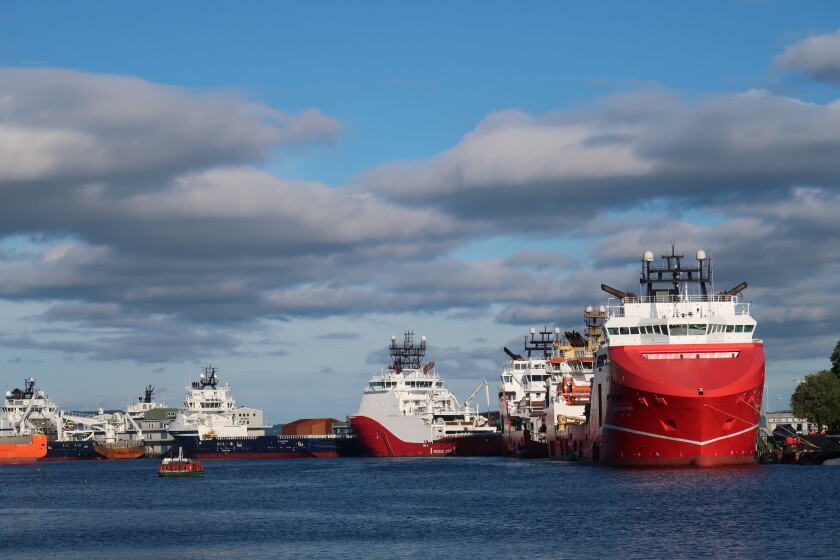The statement from the Norwegian Ministry of Finance, issued on July 5 2022, concerns whether rental payments under time charter agreements are covered by both Articles 8 and 12 of the double tax treaty between Norway and Singapore, and which of the provisions should take precedence in such cases.
Although the statement was prompted by an inquiry concerning the DTT between Norway and Singapore, the statement is important for all DTTs with a shipping clause that Norway has entered into. Furthermore, although it concerns Article 12 on royalties and so on, the argument is more general, meaning that it should also apply to interest payments falling within the scope of both Article 8 on shipping income and Article 11 on interest.
Key takeaways
Article 12 covers bare boat lease payments under time charter contracts
The Ministry of Finance assessed whether Article 12, covering rental payments for equipment under the DTT, covered payments under time charter contracts. In legal theory, the traditional view has been that only bare boat payments (leasing ships without a crew) would fall under Article 12 as an equipment lease, while time charter payments (leasing ships with a crew) fall out of scope of the provision.
The time charter payments on their side are covered by Article 8 on shipping income. (See page 982 in ‘Klaus Vogel on Double Taxation Conventions’ (2015) for further reference.) Despite this, the Ministry of Finance used statements about ‘mixed contracts’ in the OECD commentaries to do a decomposition of time charter arrangements into a bare boat lease on one side, and the lease of crew on the other. In turn, it was concluded that the payments on the bare boat part of the arrangement could be taxed in accordance with Article 12.
On this basis, a portion of the rental payments was covered by both Article 12 and Article 8. A separate question was therefore which Article takes precedence.
Article 12 takes precedence over Article 8 in the event of conflict
As a starting point, Article 8 regulates income from shipping and is a specific rule that precedes the general business profits-provision in Article 7. It follows explicitly from Article 7, that other specific provisions in the DTT can take precedence, such as Article 8 (shipping income), Article 10 (dividends), Article 11 (interest) and Article 12 (royalty income etc.). The last three provisions do not always take precedence over Article 7. It follows from these provisions that, if the income can be allocated to a permanent establishment, the income may be taxed in that state.
This is not the case for Article 8, which in its wording exhaustively regulates the taxation of shipping income. In contrast to Article 7, it does not state that other articles in the DTT may take precedence. It also differs from Articles 10, 11 and 12 as it does not open for taxation of income that is allocated to a permanent establishment. The wording and systematics of the DTT dictate that Article 8 should take precedence over Article 12. This is also implied by the OECD Commentaries.
To avoid this solution, the Slovak Republic has reserved its right to tax the leasing of ships, aircraft and containers under Article 12. Meanwhile, Greece has retained its freedom of action with regard to the provisions in the convention relating to profits from the operation of ships in international traffic.
No such reservations or observations have been made by Norway, although the Ministry of Finance also disagreed with the dictated solution. The Ministry concluded that, since Article 7 opened for exceptions in other articles, the same should apply to Article 8, because both articles regulate the taxation of business income. Thus, it was concluded that Article 12 takes precedence over Article 8.
Legal sources are used in different parts of the statement. International sources, such as Klaus Vogel, are referred to, as well as Norwegian legal theory. When assessing which provision should take precedence, the Ministry of Finance chooses to disregard international theory and important Norwegian theory (the Naas et al. international tax law) and instead emphasise just one statement in Norwegian theory (the Skaar et al. Norwegian tax treaty law from 2006). In our view, the statement is not convincing.
Consequences
In the case that prompted the statement from the Ministry of Finance, the conclusion probably resulted in more Norwegian tax. This would also affect similar cases due to non-discrimination. Furthermore, it appears to be unfortunate for the Norwegian shipping industry if other source states follow Norway's example and start imposing withholding tax on interest and lease payments.













